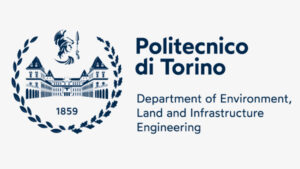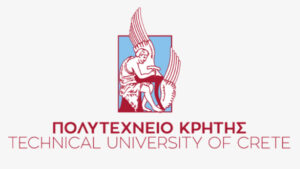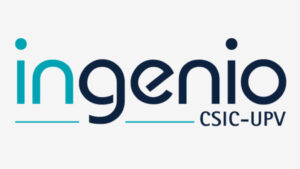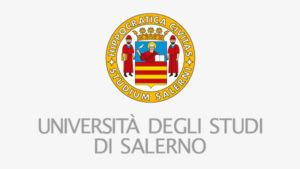Partners

Established in 1859, Politecnico di Torino (POLITO) is the oldest technical University in Italy and one of the most prestigious public institutions in Italy for education and research in engineering, architecture and design. Ranking among the first forty technical universities in the world, it is globally recognized as a high quality centre for education and research.
The Department of ENVIRONMENT, LAND AND INFRASTRUCTURE ENGINEERING (DIATI) is the point of reference in Politecnico di Torino for the areas of knowledge that study the technologies which deal with safeguarding, protecting and managing the environment and land, the sustainable use of resources, as well as the optimal and eco-compatible development of infrastructures and transport systems. DIATI promotes, coordinates and manages basic and applied research, training, technology transfer and services to the local community in the field of engineering applications within land sciences, natural sciences and economic and management sciences.
DIATI is intensively working to improve knowledge in the field of analysis and fight to climate change at national and international level. Thanks to the project climate_change@polito (2018-2022) DIATI was recognized as “Department of Excellence” by the Italian Ministry of Research and has been intervening on its own human resources, education and infrastructures, with the aim of focusing competences in climate change domains, integrating acquired knowledge with existing and further coming resources (also in terms of laboratories, facilities, equipment).
climate_change@polito project (cc@polito) qualified DIATI as an international point of reference under the technical, scientific and educational point of view for the analysis and the fight to the effects of climate change with particular reference to (i) innovation strategies for climate change monitoring and analysis, (ii) climate change mitigation through a deep analysis of negative technologies and the entire cycle of resources and materials, from their extraction to their use, with consequent emissions or re-emissions in the environment and (iii) technological and planning solutions for adaptation to climate change.
Following up cc@polito, the new CT@polito project (2023-2027) will focus on technological and digital solutions for climate transition in 5 main domains: climate hazards; resilient agriculture; low impact transports and infrastructures; strategic raw materials for industry; sustainable energy mix.

Polytechneio Kritis
The Technical University of Crete (TUC) is one of Greece’s Higher Education Institutions, which places emphasis both on education and research. The mission of the Technical University of Crete is to develop modern engineering specialties, to place emphasis on research in fields of advanced technology as well as to establish close cooperation with the industry and other production organizations in Greece. 57 laboratories with excellent equipment, high technology infrastructure and brilliant staff members and 129 faculty staff members with international academic careers testify to the high quality of the educational and research work conducted at the modern facilities of the campus. This profile ranks the Technical University of Crete amongst the most prominent research institutions in Greece. The research of this project will be conducted at the
Hydrogeochemical Engineering and Remediation of Soils (HersLab) laboratory. HersLab (www.herslab.tuc.gr) conducts research on water quality management at the watershed scale, the development and use of hydrogeochemical watershed, surface and ground water models, sustainable development of water resources, assessment and remediation of soils, and development of new technologies and use of existing ones for the remediation of soils and aquatic ecosystems from inorganic pollutants. HERSLab has strategically participated in the development of proposals that focus in developing the underlying science and the tools for successful integrated water resources management.
HersLab is using a “holistic” approach in solving environmental problems by conducting field studies, laboratory experimentation and mathematical modeling. The Lab has developed four environmental models and he is participating and has participated in many European and Greek funded watershed studies (SoilTrec, Charms, CONDENSE, EUROCAT, tempQsim, EnviFriendly, AquaTrain, MIRAGE, SoilCritZone, CyberMan). It has extensive experience on watershed monitoring and modeling in Greece, Europe and the US and he has developed watershed models such as the ETD model, the NTT model and the HM-1D and 3D models, the Reach Scale tempQsim model for temporary rivers, the Karstic model for predicting the flow and water quality and the integrated soil critical zone model part of SoilTrec.

UPV
UPV is a public Higher Education Institution actively involved in international cooperation and mobility projects. UPV hosts nearly 30,000 students, employs over 4,000 people (teaching, research, and administrative staff) and it is the first technological university in Spain according to international rankings (e.g. Shanghai Ranking of World Universities).
UPV offers 39 undergraduate programmes, over 80 official Master’s degrees and 30 Doctorate programmes. Even though UPV focuses mainly on engineering and technical studies, it also hosts a Faculty of Fine Arts and a Faculty of Business Administration and Management. INGENIO (CSIC-UPV) is a joint research centre of the Spanish Council for Scientific Research (CSIC) and the Universitat Politècnica de València (UPV), with more than 30 researchers from different professional fields, academic backgrounds and nationalities. INGENIO is internationally known for its research in the economics of innovation, research evaluation and science policy. It is building an increasingly strong reputation in the areas of science and research policy, social innovation and responsible research and innovation (RRI). INGENIO researchers publish in the leading journals, and present their work at the top international conferences, in their respective fields. As a joint CSIC-UPV centre, INGENIO provides a broad range of possibilities to develop research and teaching activities, train postgraduate students, and regularly hosts international researchers and PhD students.

Femxa
Femxa is an organization with 25 years of experience, specialized in consulting and vocational training for employment, aimed at both employed and unemployed individuals, companies, public administrations, consulting firms, professional practices, training centers, and universities.
With the mission of supporting people and organizations in their personal and professional growth, Femxa has trained more than 850,000 individuals in Spain and over 20,000 in Latin America throughout its history, delivering 22,000 in-person courses and more than 27 million hours of online training using its own methodology.

University of Salerno
The University of Salerno (UNISA) is one of the largest Universities in Italy with more than 35000 enrolled students and
more than 900 professors and researchers. Overall UNISA offers more than 70 courses of study including bachelor’s, master’s and doctoral degrees. The advanced scientific research activities are evidenced by more than 3,800 scientific publications on average per year and by the numerous projects presented in competitive calls, patents and accredited spin-offs.
The research unit of the Environmental and Maritime Hydraulics Laboratory of UNISA has expertise in river engineering and hydrology. They developed research in the fields of satellite remote sensing of freshwater environments, river management, flood and debris flow risk, climate change effects, sustainable urban drainage systems and water resources management.

Draxis Environmental SA
DRAXIS Environmental S.A. is a dynamic Greek SME with strong experience in providing solution development and implementation of Environmental Technologies. Draxis provides specialized environmental consultation services, anticipates market needs and develop state-of-the-art solutions for the private and public sectors at local, national and European levels.The company uses, combines and integrates remote sensing technologies, compound algorithms, GIS and other datasets to build multi-functional web-based information systems, mobile applications, crowdsourcing platforms, workflow-based digital services and other software solutions mainly in the fields of climate change, air quality, energy and circular economy. Having an experienced diverse pool of professionals, the company invests in research, so as to keep up with the latest scientific advances; this, coupled with its active involvement in European and National research projects, enables the company to provide top quality services and high technological standards. In Temporary Rivers, DRAXIS will develop the GIS tool and will contribute in the implementation of other tasks as well utilising its experience.
